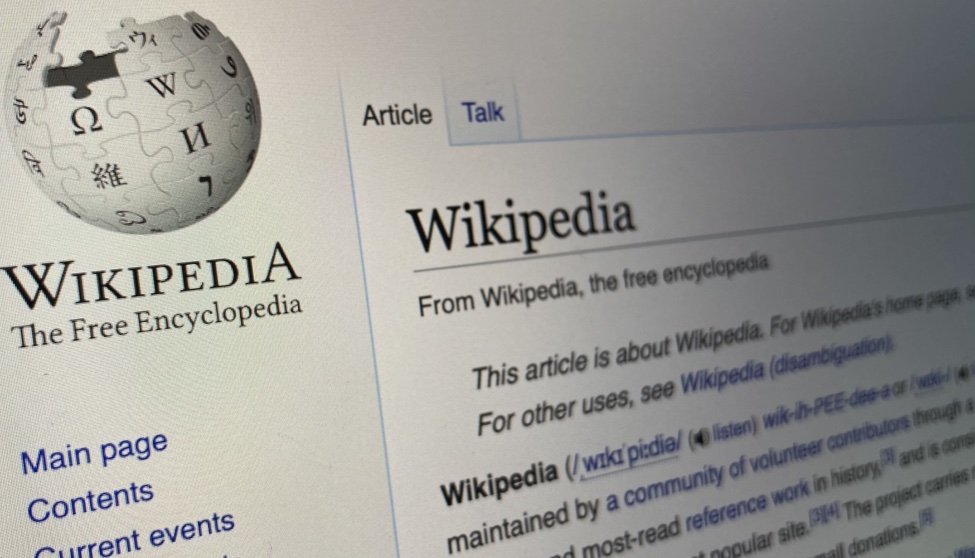You are currently browsing the category archive for the ‘Bordercrossing News’ category.
This week, my University of Innsbruck hosted the conference on “Enhancing the voice of science on Wikipedia: How universities can collaborate with the online encyclopedia in science communication”. I had the honor to deliver the opening keynote on “Science (Communication) and Wikipedia: Potentials and Pitfalls”. In this talk, I offer some thoughts on the following questions:
- How ‘scientific’ is Wikipedia?
- How important is science for Wikipedia?
- How important is Wikipedia for science?
- How important is Wikipedia for our common knowledge?
- What are potentials when science communication meets Wikipedia?
- What are the pitfalls?
- Is it worth it?
The slides are available over at Slideshare.
Florian Überbacher (Montpellier Business School), Elke Schüßler (Leuphana University) and Arno Kourula (University of Amsterdam Business School) are calling for submissions to their 2024 EGOS Subtheme on “Regulating Organizations: Re-Examining the Intersections between States and Businesses”.
In view of the grand environmental, political, and social problems we are facing, we would – perhaps more urgently than ever – need a functioning regulatory and legal environment that motivates companies contribute towards making our world more sustainable. But how should such a ‘better’ and ‘smarter’ regulatory system look like and how should regulatory processes be organized?
To address such questions, and connect organizational scholarship with ongoing debates on (trans)national governance and regulation, the aim of this subtheme is to invite scholarship that seeks to integrate, extend, or contradict regulatory and organizational research in novel ways.
The deadline for the submission of short papers is January 9th, 2024.

Over at Elephant in the Lab, Paul Börsting and Maximilian Heimstädt blogged about “Wikipedia as Science Communication” and provide a neat step-by-step guide for researchers who want to improve their field’s coverage in the world’s most important encyclopedia:
Instagram, TikTok, Clubhouse: Today, researchers who want to share their work with non-academic audiences can choose between a vast array of digital platforms. Some of them vanish as quickly as they appear. Others attract an audience that is looking for something other than scientific content. This blogpost is a plea for researchers to consider one of the most important and yet oftentimes neglected digital platforms when thinking about science communication: Wikipedia. Occupying a stable position among the most accessed websites, it has become the most popular encyclopedia worldwide. However, when considering various alternatives for digital science communication, many scholars think of Wikipedia as just another profile page on the web, complimenting their institutional website. However, they are missing the point. The great but underappreciated advantage of Wikipedia is that it allows researchers to communicate research results and scientific expertise in exactly the place where people look for it: in topical Wikipedia articles. In this way, Wikipedia provides one of the most straightforward and effective means to share knowledge and to leverage research findings towards societal impact. Engaging with the vibrant community of co-editors on Wikipedia is also not a one-way street but in turn can broaden one’s horizon and potentially inspire future research.
Check it out!
Over at the Käte Hamburger Kolleg / Centre for Global Cooperation Research, we have recently launched Cooperadio – The Global Cooperation Podcast. In its most recent episode on “Patents, Profits & Pandemics”, I had the honor and pleasure to host intellectual property scholar Susan Sell, who echoes a growing consensus that our intellectual property regime, that is so essential for 21st century intellectual monopoly capitalism, is hampering global health outcomes – not just in the current pandemic.
Together, we addressed questions such as the following:
- While in regions like Europe and North America national vaccination campaigns have been picking up speed over the past months, the less well-off majority of the world has seen little to no vaccine supplies.
- Why does it have to be like that?
- Is there a moral obligation to make health innovations easily available globally?
- What about the intellectual property rights of the researchers and creators of these innovations, should they not profit from their work?
Check it out!
(sigrid)
Confronted with the need to adapt teaching in the summer term to the ongoing corona cris, my colleague Elke Schüßler, who is regular contributor to this blog, and I teamed up with six other organization scholars in Germany and Austria to design a collaborative open course on “Organizing in Times of Crisis: The Case of Covid-19”. From the course description:
The worldwide spread of the Covid19 virus poses a grand social challenge. Seriously threatening the health of the world’s population and accompanied by huge social and economic disruption, it is one of the largest immediate crises for Western societies since World War II and a humanitarian disaster for humankind around the world. Drawing on classic and contemporary organization theory, this course aims to illuminate many pressing questions surrounding the pandemic, such as how supply chains can be organized to ensure adequate supplies of health material, the strengths and difficulties of open science approaches to the development of a vaccine or capabilities of different forms of organization and coordination to quickly and adequately respond in times of crisis.
All course materials, readings, assignments and video lectures are available open access at timesofcrisis.org and the corresponding YouTube channel respectively. Given that all is available under a Creative Commons license, we invite lecturers to use, adapt and build upon our materials. Where possible, we offer the course material in open, changeable formats to make adaptation as easy as possible (e.g., the standard course syllabus). Check it out!
(leonhard)
Inspired by a post on this blog about the dangers of predatory publishing and open peer review as a potential response, Maximilian Heimstädt and I decided to dig deeper into the issue. Specifically, we were able to get access to some data on (potentially) predatory journals in organization and management studies. Based upon the analysis of this data we discuss the potentials of open peer review for our own discipline. The abstract reads as follows:
Predatory journals have emerged as an unintended consequence of the Open Access paradigm. Predatory journals only supposedly or very superficially conduct peer review and accept manuscripts within days to skim off publication fees. In this provocation piece, we first explain how predatory journals exploit deficiencies of the traditional peer review process in times of Open Access publishing. We then explain two ways in which predatory journals may harm the management discipline: as an infrastructure for the dissemination of pseudo-science and as a vehicle to portray management research as pseudo-scientific. Analyzing data from a journal blacklist, we show that without the ability to validate their claims to conduct peer review, most of the 639 predatory management journals are quite difficult to demarcate from serious journals. To address this problem, we propose open peer review as a new governance mechanism for management journals. By making parts of their peer review process more transparent and inclusive, reputable journals can differentiate themselves from predatory journals and additionally contribute to a more developmental reviewing culture. Eventually, we discuss ways in which editors, reviewers, and authors can advocate reform of peer review.
The article has been published in the journal Management Learning and is available as an open access full text.
Together with Rick Delbridge (Cardiff University, Wales), Markus Helfen (University of Innsbruck, Austria), Andi Pekarek (Melbourne University, Australia) and Charlene Zietsma (Pennsylvania State University, USA), I am co-organizing the upcoming Organization Studies Summer Workshop on the topic “Organizing Sustainably: Actors, Institutions, and Practices”.
Our main aim is to go beyond the common mantra of contemporary management scholars and practitioners that there is a ‘business case’ for sustainability towards examining what alternative forms of organizing can contribute to the sustainable usage of environmental, social, and economic resources in ways that avoid their degradation and exhaustion. While such models already do exist, they often do not spread or scale up, remaining exploitative business practices untouched on a larger scale.
The submission system is now open, and the full call can be found here: https://osofficer.wixsite.com/osworkshop?fbclid=IwAR3bV80vSvxpbVMF-IWiOiPYmR5Vv022ganthYq2xj6MBACe6R_Uxf2xvdE
We will also use this workshop to reflect about sustainable forms of organizing in our own scholarly community. As a temporary team of organizers meeting a long-standing routine of highly productive summer workshops, we are ourselves directly faced with the challenge of being unable to meet the “triple bottom line” of environmental sustainability (these are typically bad, because academics fly to conferences), social and economic impacts on the local community and employees (these in our case are good, because the venue has strong sustainability policies), and economic/academic “performance” (the summer workshops are usually seen as a highly productive meeting format). We will use the direct experience of this contradiction to reflect about our own scholarly practices during our workshop to hopefully develop some ideas for more sustainable forms of scholarship.
Connecting migration studies and the theory of valuation, the collection edited by Glaucia Peres da Silva and Konstantin Hondros (both from University of Duisburg-Essen) offers an interdisciplinary approach to the study of transnational music practices. Conceiving music as a practice not confined to audibility, the interdisciplinary contributions reveal how music emerges in concrete situations through people, objects, techniques, meanings, and emotions in different parts of the world and during different historic periods. Values are thereby created and shared, and creative processes are evaluated in terms of diversity, space and exchange.
The book presents cases of contemporary, popular and traditional music, festivals and trade fairs, albums and band projects, shedding light on the tensions between the transfer, reconstruction and creation of music in different contexts. Since the editors were able to publish the anthology open access – thanks to the university library of the University Duisburg-Essen – the book “Music practices across borders” as a full-text PDF.
To all of you who do research on organizational openness: please send us your paper for a Special Issue in Organization Studies on “Open Organizing in an Open Society? Conditions, Consequences and Contradictions of Openness as an Organizing Principle” (PDF) by Nov 30, 2019, and maybe also (but not compulsory) a short paper to the EGOS sub-theme (by Jan 14, 2019). From the call for papers:
The central objective of the special issue is to explore how societal demands for various dimensions of openness are realized in contemporary organizing. In so doing this special issue seeks to lay foundations for theorizing openness as a general organizing principle. Such theorization may not only have profound implications for conventional theories of organizations, but also enable us to understand and examine potentially paradoxical repercussions of applying openness as an organizing principle for both organizations and society at large. We welcome empirical and conceptual papers that cut across existing literatures, thereby extending previous literatures in three main ways: 1) Papers that systematically compare conditions of openness across specific domains or across open organizational forms. In particular, papers might explore demands for organizational openness at the societal level and compare them across literatures on organizational openness. 2) Papers that examine the consequences of openness as an organizing principle in specific domains on the various notions of organizational openness (fluidity, transparency, etc.) or on the process of open organizing. 3) Papers that assess contradictory trends and paradoxes associated with openness across literatures. In particular, papers could explore how the trend towards more organizational openness and/or openness in specific domains give rise to new closures and exclusionary dynamics. We also invite papers that address how organizational openness is connected or even contributes to the decline of certain democratic principles in contemporary societies. In short, papers could examine how openness as an organizing principle opposes or contributes to new types of closure and exclusion.
Please find more information and links over at the OS ConJunction blog.
(leonhard)







